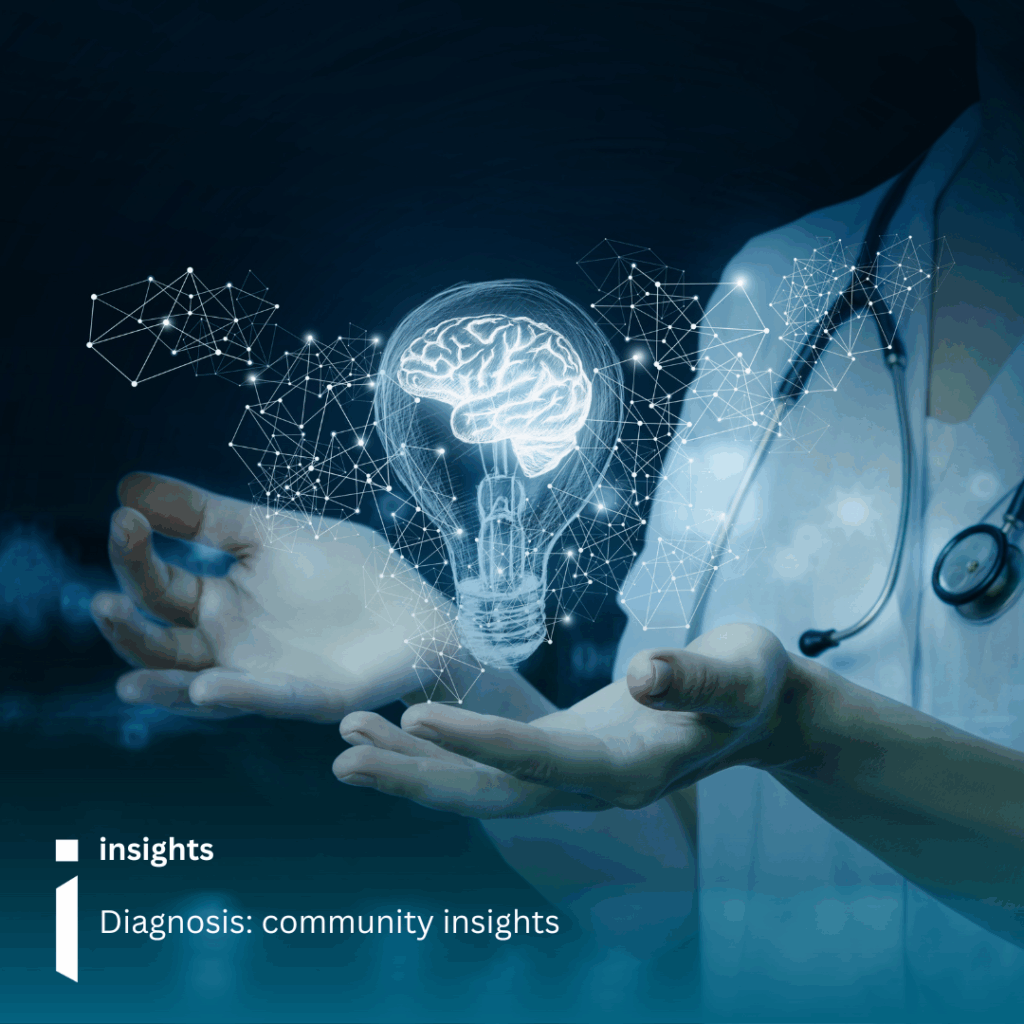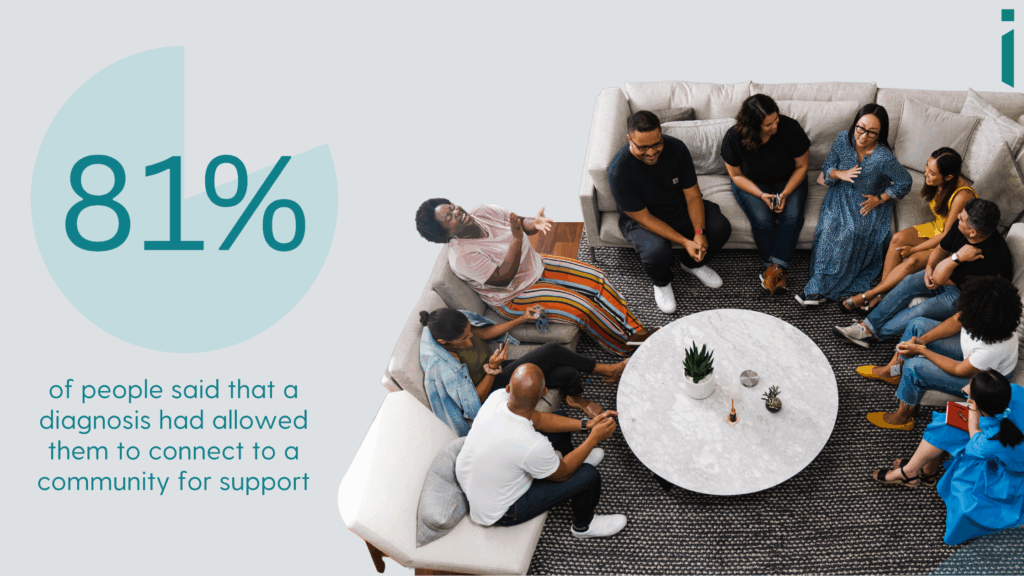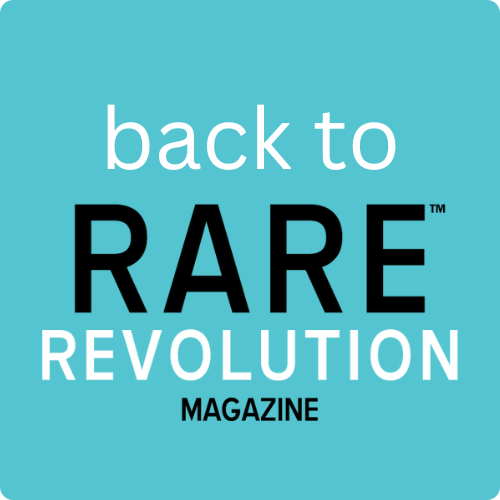RARE Revolution poll finds diagnostic pathways and service provision is failing patients
Estimated reading time: 6 minutes

Unexplained symptoms often have an untold impact on quality of life, and this makes receiving a confirmed diagnosis vitally important. While a diagnosis can be the light at the end of a dark tunnel for some patients, for others, it can be the beginning of a deeply frustrating battle to receive the care and support they urgently need.
RARE Revolution has found a mixed international diagnostic and service provision picture which highlights a concerning pattern of delayed diagnoses and services falling short
What’s in a diagnosis
We snap polled the rare disease community via social media platforms Facebook, Instagram, LinkedIn and X on the topic of diagnosis. While pleasingly 76% of respondents said they did have a diagnosis (which included fibrodysplasia ossificans progressiva (FOP), Schuurs-Hoeijmakers syndrome (also known as SHMS or PACS1) and McLeod neuroacanthocytosis syndrome (also known as XK disease)), 24% said they had not received any confirmatory diagnosis.
One parent’s comment stood out—having a “partial diagnosis” they don’t yet know the connection with other conditions their son has, demonstrating that the complexity of comorbidities can obscure the full diagnostic picture.
The importance of a diagnosis is clear. When asked whether having a confirmed diagnosis resulted in a positive or negative effect on quality of life, 79% said that their diagnosis had a positive impact on their, or a loved one’s life. 15% experienced a negative impact and 9% said having a diagnosis had made no tangible impact on their quality of life to date.
Describing the life-changing impact diagnosis can have, one participant shared:
“It’s been positive—without my Addison’s disease diagnosis and proper medication management, I would not be here today. I believe a diagnosis can be both a heartbreak and a hallelujah.”
Another respondent also says getting a diagnosis has been beneficial:
“Positive—despite the challenge of stiff-person syndrome (SPS). Knowing is half the battle.”
However, this contrasted with the incredibly concerning experience of another participant:
“Doctors use it (lack of diagnosis) as a reason to not see us. They don’t even have to acknowledge us.”
The importance of diagnosis on access to treatment and services
We also heard from a participant who shared, “Diagnosis had a very negative impact on the care I received, but my quality of life was still okay, and I continued to live my life as well as I could.”
She has since been re-diagnosed and says:
“Things have been better on the whole, and my experiences in healthcare settings have been better too. Seeing a genetics professor was a turning point for me.”
On the topic of whether receiving diagnosis opened access to treatment or therapies (both medicinal and non-medical interventions), 60% replied that it led to new treatment and management and 40% said it hadn’t changed their care—very much illustrating the mixed service and treatment provision picture.
Importantly, in recognition that most rare diseases lack any effective treatments, we asked whether having a diagnosis opened up access to support services (including social services, financial benefits and access to community or national support initiatives). Nearly half (48%) of participants said yes, a diagnosis had helped pave a way to better support provision. But concerningly, that leaves 52% reporting no increase in support provision since receiving their diagnosis.
One respondent’s comments really illustrate the complexity of the support services picture.
“I had no support with my original diagnosis—no top-down support or funding for relapsing polychondritis as it is too rare. But being diagnosed with both respiratory and heart failure, which resulted from my rare disease, helped me qualify for disability benefits and palliative care, etc.”
Another participant shared her sheer frustration with the diagnostic pathway and lack of access to support.
“I really wish it would because this mess of medical jargon, diagnosis, appointments and trying to fight for things you, or your loved one, needs when the medical ‘experts’ don’t understand the disease as well as you or the patient, is so difficult.”
Whether diagnosis enabled participants to connect to community support for their rare condition was the topic of a further question. 81% of people answered yes it had helped them reach a community, while 19% said no, they were still looking for relevant community support.
One respondent particularly highlighted the enormous benefit that finding your rare community can provide.
“Getting a diagnosis not only gave us a direction to research but also opened up a whole world of support, both from organisations and from other families going through the same diagnosis. For the last decade, they’ve been our village as we navigate raising a rare child alone.”

Professional gaslighting
Anecdotally, RARE Revolution has heard on many occasions from families where they have believed professionals to be reluctant to provide a confirmed diagnosis or “label”. This significantly fails to recognise the value and importance of having a diagnosis for patients. Without this, they can feel unseen, unheard and unable to access support. As the previous insights highlight, it can also prevent them from finding their relevant rare community.
This prompted us to ask whether people had experienced pushback from professionals, both in terms of confirming or accepting a diagnosis. Interestingly 52% said they had experienced pushback, specifically from healthcare professionals. Education (15%), workplace (15%) and ‘other’ settings (13%) were also reticent to accept diagnosis, respondents told us. Just 5% reported no pushback whatsoever feeling that their diagnosis was universally accepted.
When asked if they had experienced pushback from professionals, one participant’s simple response sums it up aptly: “Yeah, basically everywhere.”
Individuals do not chase a diagnosis for the label, they chase them with great intent because of the knock-on impact. For the access to potential life-changing treatments, for access to wrap around support services and for access to a community of people where they can feel a sense of belonging.
When asked if they had a confirmed diagnosis, one participant responds with humour: “Yes, (but) having a rare condition is one of the least interesting things about me.”
In short—a diagnosis does not define us, but it sure can make a big difference, and these insights, from just a small cross-section of our community, show that we are still a very long way from getting it right. Clearly, much more needs to be done at a systemic level if we are to end the much talked about diagnostic odyssey of old!
*Number of respondents varies (to a maximum of 100)
To view the insights from the diagnosis trial polls, click on the insights button below.
in the know brings you the latest conversations from the RARE think tank. To access more in the know articles click below.

